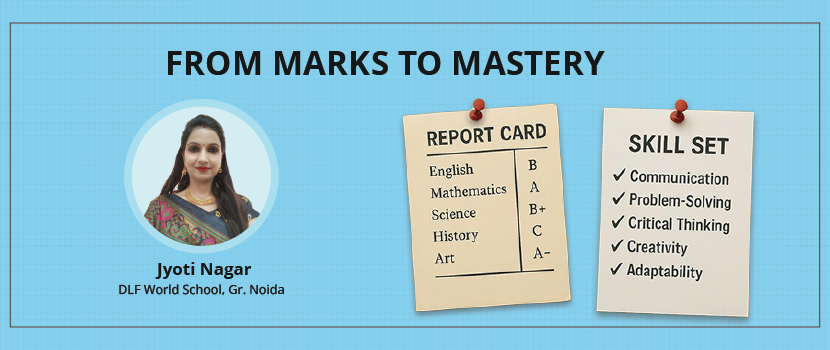
May 13, 2025
By Jyoti Nagar
In an era driven by innovation and adaptability, the age-old question resurfaces: Are marks the true measure of a learner’s ability? As the world of education evolves, there is a growing realisation that the traditional scorecard does not always reflect a student’s true potential. This shift in mindset is ushering in a new educational paradigm—competency-based education (CBE)—that emphasises skills over scores and mastery over memorisation.
Competency-based education is a learner-centric approach where the focus is on what students can do with what they know, rather than how much content they can recall in an exam. It enables students to progress at their own pace, ensuring they gain a deep understanding of concepts before moving ahead. Skills such as critical thinking, collaboration, communication, creativity, and digital literacy take centre stage in this model.
In today’s job market and real-life scenarios, employers and society value practical abilities—the capacity to solve problems, work in teams, manage time, and adapt to changing environments. A student with excellent grades but poor problem-solving or communication skills may struggle outside the classroom. Hence, education systems are increasingly realigning their goals to prepare students for life, not just exams.
As educators and school leaders, it is our collective responsibility to nurture this shift—from marks to meaning, from performance to purpose, from scores to skills.